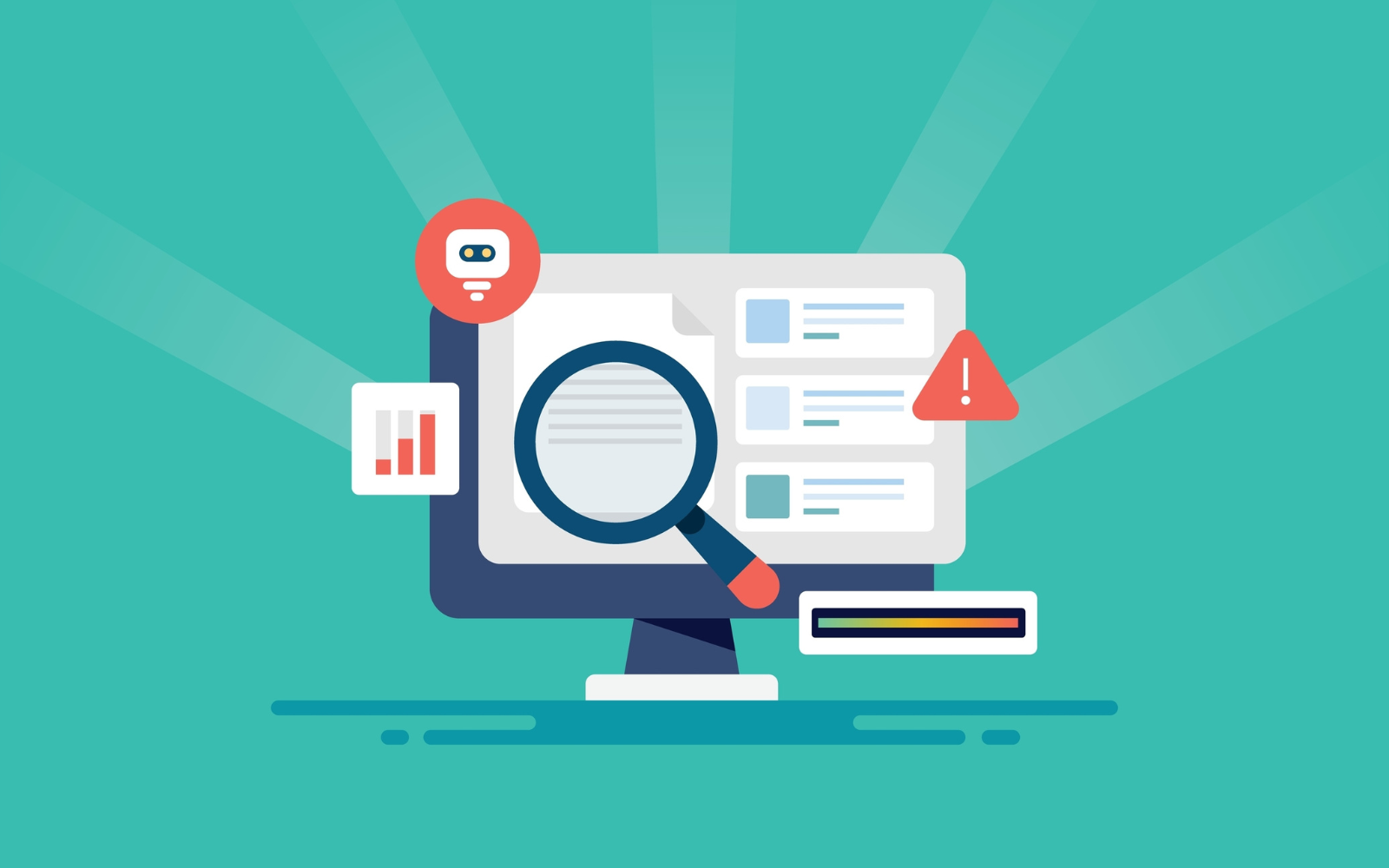
If you’re a student in 2025, you already know how the academic game has changed. Professors aren’t just looking at the quality of your writing anymore; they’re also watching for signs of AI assistance.
Entire essays can look suspicious if the phrasing feels too uniform or if the detector flags a paragraph as “likely AI-generated.” That’s where content detectors step in: tools that help you double-check your work before submission.
But here’s the tricky part. Some detectors are overly harsh and mark genuine writing as AI. Others miss obvious signs of machine-generated content. And when your grade (or even academic integrity) is on the line, you want more than guesswork.
That’s why we’ve pulled together a list of six of the most talked-about detectors right now. These are platforms that stand out in terms of accuracy, accessibility, and trustworthiness.
Before diving into the tools themselves, let’s lay out the basics of how we judged them.
The Criteria We Used
Choosing the “top” AI detectors isn’t as simple as typing “best AI checker” into Google. We looked at five core areas that matter most to students:
- Accuracy over speed. A quick scan means nothing if the results aren’t reliable. We focused on detectors with data-backed precision.
- False positives. Flagging human writing as AI can be worse than missing AI. Tools that overreact didn’t make the cut.
- Ease of use. Students don’t need another complicated dashboard. Clear design and simple workflow are essential.
- Accessibility. Whether free trials, guest access, or affordable credits, the best platforms don’t block the average student out.
- Academic alignment. Tools that understand the real context of student work (essays, research papers, reports) ranked higher than generic detectors built for marketers.
With those benchmarks in mind, let’s learn more about the six platforms that made it into the spotlight.
StudyPro

StudyPro leads our list because it does more than just detection. It’s built as an academic platform, not a one-off tool, which makes it stand apart.
While many services offer detection as a side feature, StudyPro integrates it directly into a workflow designed for students – from outlining and drafting to refining and checking originality.
What makes it strong as an AI content detector is its emphasis on reliability. Instead of rushing for flashy “fast scan” claims, StudyPro cross-checks content against multiple detection models. That means you’re less likely to see unfair false positives when you’ve clearly written something on your own.
Another factor that keeps it ahead is accessibility. During its beta, students can use the platform freely, with generous credits even for guest users.
And because it’s tied to a full academic editor, you can check your draft in the same place you write – no constant copy-paste into a separate window.
Bottom line: StudyPro hits the right notes of precision, ease, and student-friendly design.
Originality.ai

Originality.ai has built a reputation around raw accuracy. Independent testing often places it among the most reliable detectors on the market, especially for English and multilingual text.
The platform supports 30 languages, which makes it useful for international students or anyone working in bilingual environments.
Its detector doesn’t stop at AI; it also offers plagiarism checks, so you can scan for both issues in one place. That dual functionality is valuable if you’re trying to cover all bases before submitting a paper.
The trade-off? Originality.ai isn’t free. Credits are required, and the costs can add up if you’re scanning long essays regularly.
It also tends to struggle a bit with hybrid writing – where a student drafts but uses AI for light editing. Still, for sheer detection power, it deserves its spot high on the list.
Copyleaks

Copyleaks is one of the most academically tested platforms out there. Studies show it can reach accuracy rates of over 99% with an impressively low false positive rate (as low as 0.2% in some benchmarks). That’s an edge few competitors can match.
It also works across more than 30 languages, and unlike many detectors, it can recognize paraphrased AI text with decent reliability. That makes it useful for catching content that isn’t just copy-paste AI but lightly reworded by machines.
Its biggest strength is trust. Copyleaks has been used in academic settings for years as a plagiarism checker, so its shift into AI detection comes with an established reputation.
On the downside, it can feel slightly over-engineered for a student who just wants a quick check. But it’s a dependable option for those who value thoroughness.
GPTZero
GPTZero has a special place in the AI detection world: it was one of the first Ai detection tool platforms to go viral for spotting ChatGPT-written text. It uses measures like perplexity (how predictable text is) and burstiness (variation in sentence patterns) to distinguish human writing from machine output.
For students, its biggest selling point is accessibility. The free version is simple and easy to use, with a no-frills interface that gives you results quickly. It’s a decent “first stop” if you just want to get a sense of how your paper might be judged.
That said, it’s not always the most reliable. False positives happen more often than with paid detectors, especially if your writing style is straightforward or polished.
And as newer AI models produce more human-like text, GPTZero sometimes falls behind in nuance. Still, it remains popular among students for its convenience.
Turnitin
Turnitin is already embedded into the academic experience at thousands of universities. Its plagiarism checker is practically an industry standard, and in 2023, it rolled out its AI detection feature. According to its own claims, the detector reaches about 98% accuracy.
The advantage here is obvious: if your institution uses Turnitin, whatever it flags is what your professor will see. Using it yourself gives you insight into how your submission might be judged.
The challenge is accessibility. Turnitin isn’t freely available to individual students – you can’t just sign up and use it. You’ll only interact with it through your institution’s portal.
And many universities have turned off the AI detection feature entirely, citing concerns over false positives and the stress it causes students.
For those reasons, Turnitin is more of a “must-know” detector than a “must-use” one.
Writer.com

Writer.com is better known as a content platform for businesses, but it offers a free AI detector that students often test out. It’s straightforward: paste in your text (up to 5,000 words), and it gives you a likelihood score of whether it thinks AI wrote it.
The main draw here is simplicity. If you want a fast, no-login-required check, it’s one of the easiest options out there.
The downside is accuracy. Writer.com’s detector is notorious for mislabeling human writing as AI and for missing machine-generated content when it’s slightly polished.
It’s best viewed as a lightweight option: useful in a pinch, but not one you’d rely on as your only safeguard.
Wrapping Up
AI content detectors aren’t perfect, but they’ve become part of academic life. For students, the challenge isn’t avoiding AI altogether – it’s proving the integrity of your work and protecting yourself from unfair accusations.
That’s why it’s worth knowing which detectors are out there and how they differ. Some, like Originality.ai and Copyleaks, focus on hardcore accuracy. Others, like GPTZero and Writer.com, are accessible and easy to test. And platforms like StudyPro bridge the gap by combining detection with the broader writing process.
No matter which one you use, the point is the same: stay ahead. Use these tools as guides, not as judges, and always keep your institution’s policies in mind.
At the end of the day, detectors are here to support your confidence – the real credit still belongs to the effort you put into the work yourself.
Raghav is a talented content writer with a passion to create informative and interesting articles. With a degree in English Literature, Raghav possesses an inquisitive mind and a thirst for learning. Raghav is a fact enthusiast who loves to unearth fascinating facts from a wide range of subjects. He firmly believes that learning is a lifelong journey and he is constantly seeking opportunities to increase his knowledge and discover new facts. So make sure to check out Raghav’s work for a wonderful reading.




